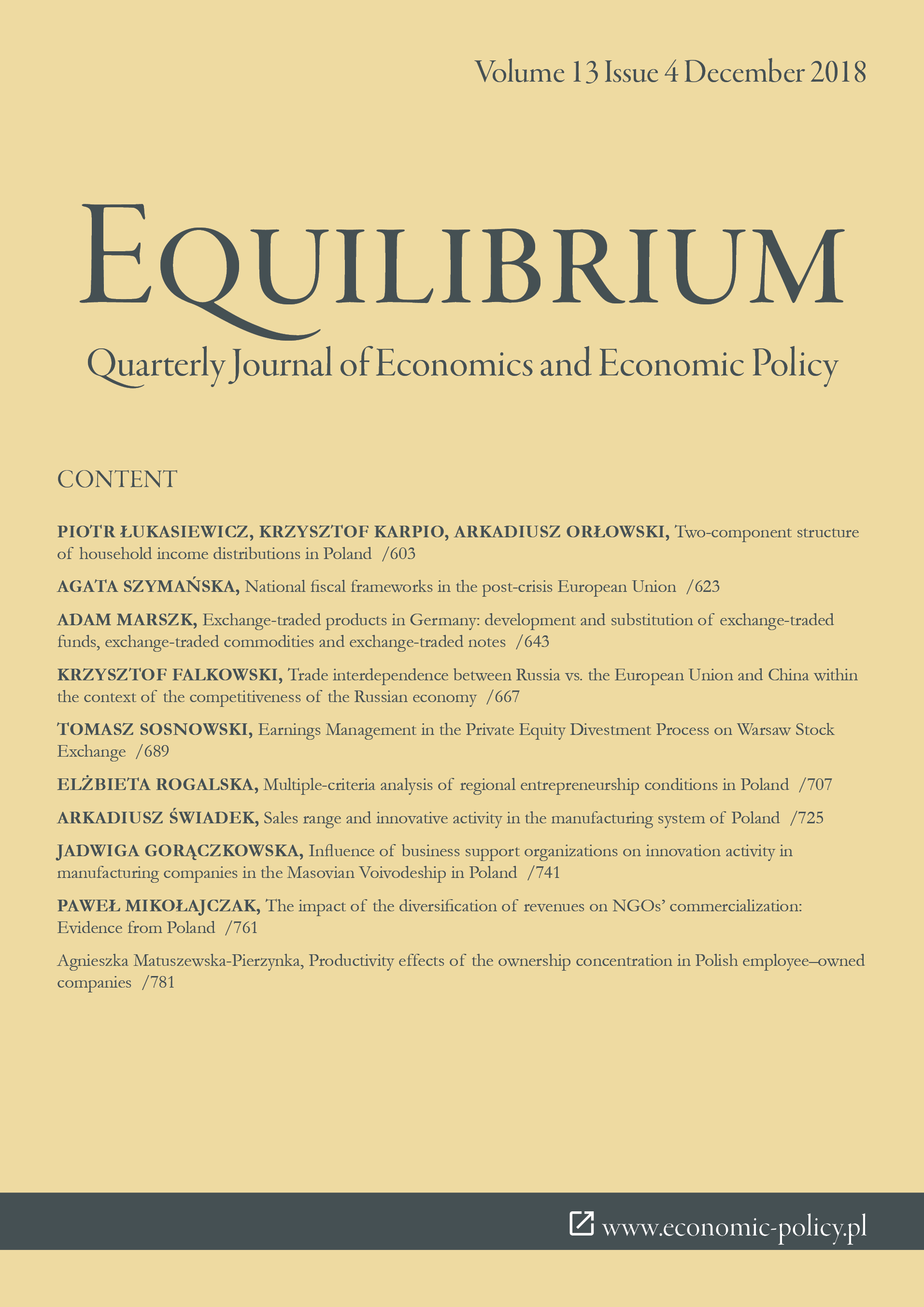Trade interdependence between Russia vs. the European Union and China within the context of the competitiveness of the Russian economy
Trade interdependence between Russia vs. the European Union and China within the context of the competitiveness of the Russian economy
Author(s): Krzysztof FalkowskiSubject(s): National Economy
Published by: Instytut Badań Gospodarczych
Keywords: trade interdependence; competitiveness; competitive advantages; Russia; European Union; China
Summary/Abstract: Research background: The position of a country in the international division of labour is determined by the competitiveness of its trade, the structure of which may both reveal and perpetuate the comparative advantages possessed. This is particularly true for Dutch disease economies such as Russia. Recently, economic literature has seen a growing interest in the topic of Russia’s economic relations with the European Union and China. This article is aimed at being the Author’s contribution to this discussion. Purposes of the article: (1) to discuss the existing trade interdependence between Russia and the EU28, and Russia and China; (2) to try to assess the extent to which the current structure of Russian trade with these two partners corresponds with the competitiveness of the Russian economy. Methods: An in-depth analysis of Russia-EU28 and Russia-China trade interdependencies in 2007-2015 has been conducted, with emphasis on the categories of goods within the spectrum from low- to high-technology, according to the OECD classification. Furthermore, in order to analyse Russia’s competitive profile with regard to the same categories of goods, Balassa’s methodology of revealed comparative advantages has been applied. Findings & Value added: In the recent years, a growing importance of China in Russian trade turnover can be observed, being the effect of dynamic growth of Chinese economy, cooling political relations between Moscow and Brussels and the drop in oil prices in international markets. The existing structure of Russian trade with the EU28 and China seems likely to preserve its traditional competitive advantages in the medium-low-technology goods and oil, which, in turn, will only further exacerbate the negative consequences of the so-called Dutch disease affecting the Russian economy.
Journal: Equilibrium. Quarterly Journal of Economics and Economic Policy
- Issue Year: 13/2018
- Issue No: 4
- Page Range: 667-687
- Page Count: 21
- Language: English

